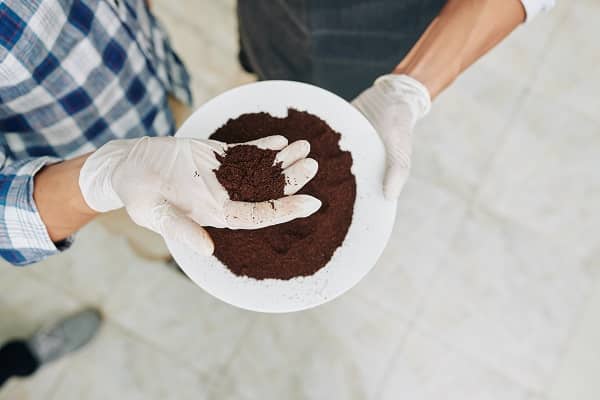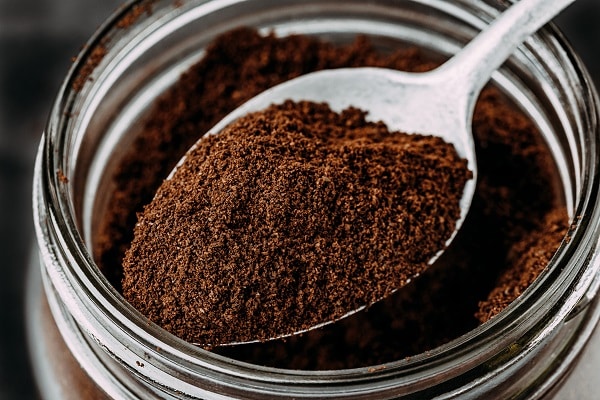Every day, millions of people around the world consume coffee, leaving behind a significant amount of used coffee grounds. Often, these grounds end up in the trash and eventually contribute to landfill waste. However, there’s so much more you can do with these coffee leftovers! From gardening to cleaning, even beauty care used coffee grounds can be repurposed in a surprising number of ways. This post is dedicated to exploring those creative methods, helping you turn your daily coffee habit into a wellspring of sustainable practices.
Contents
- 1 The Importance Of Coffee Ground Repurposing
- 2 Composting with Coffee Grounds
- 3 Using Coffee Grounds In The Garden
- 4 Coffee Grounds For Cleaning Purposes
- 5 Beauty Uses Of Coffee Grounds
- 6 Coffee Grounds In Crafts And Decor
- 7 Cooking With Coffee Grounds
- 8 Potential Risks And Limitations
- 9 Consider The Many Uses For Used Coffee Grounds!
The Importance Of Coffee Ground Repurposing
Discarded coffee grounds pose a considerable challenge to the environment. Every year, tons of coffee waste ends up in landfills, contributing to greenhouse gas emissions. However, these coffee leftovers are far from useless. Rich in nutrients, coffee grounds can be valuable resources when utilized properly, benefitting not only your home and garden but also the environment as a whole.
Moreover, the repurposing of coffee grounds can promote a culture of sustainability and waste reduction. By reusing what would otherwise be discarded, you can foster a more circular economy, reducing your ecological footprint while saving money. Coffee grounds repurposing is, therefore, not just a practical venture but also an opportunity to contribute to a healthier planet.
Composting with Coffee Grounds
Used coffee grounds make a fantastic addition to compost piles. They are rich in nitrogen, a key element that helps compost break down effectively. Coffee grounds are categorized as “green” compost material, balancing out the “brown” materials like dried leaves, straw, or paper that are rich in carbon. This balance is crucial for the compost to decompose properly.
However, moderation is key. Too many coffee grounds can lead to an acidic compost pile, which might not be beneficial for certain plants. Experts recommend that coffee grounds should make up no more than 20% of the compost pile. Additionally, coffee grounds can compact, reducing aeration in the compost, so it is important that you mix them thoroughly with other materials.
Using Coffee Grounds In The Garden
Used coffee grounds can also have direct applications in your garden. They can serve as a natural fertilizer because they’re rich in nutrients like nitrogen, potassium, and phosphorus that promote plant growth. Sprinkling coffee grounds in your garden beds can provide a nutrient boost for your plants and improve the soil structure.
In addition, coffee grounds can also act as a natural pest deterrent. Certain pests, such as slugs and snails, dislike the abrasive and acidic nature of coffee grounds. Spreading a barrier of coffee grounds around your plants can help protect them from these pests. But remember, as with composting, moderation is crucial, and grounds should be used as part of a varied, balanced approach to soil health and pest control.
Coffee Grounds For Cleaning Purposes
One might not immediately consider coffee grounds a cleaning tool, but they can be surprisingly effective in this role. Coffee grounds are naturally abrasive, making them perfect for scrubbing duties. From pots and pans to your kitchen sink, coffee grounds can help you scrub away stubborn stains and residues without relying on harsh chemicals. What’s more, it’s a cost-effective and eco-friendly cleaning solution that utilizes a byproduct you would typically throw away.
Used coffee grounds can also serve as excellent deodorizers. Their natural ability to absorb odors makes them perfect for freshening up your fridge, your car, or even your hands after chopping pungent foods like garlic or onions. Simply place some dried coffee grounds in a small open container, and let them work their magic in absorbing unwanted smells.
Beauty Uses Of Coffee Grounds
The coarse texture of coffee grounds makes them an ideal natural exfoliator. When used in a body scrub, coffee grounds can help slough off dead skin cells and stimulate blood flow, leaving the skin smoother and refreshed. Plus, the caffeine in coffee is said to have anti-inflammatory properties, which may reduce puffiness and tighten the skin.
Beyond exfoliation, coffee grounds can also be beneficial for hair care. The same nutrients that help plants grow can nourish your hair and scalp. A coffee grounds scalp scrub can help to remove product build-up and exfoliate the scalp. Again, it’s worth noting that while many people find these treatments beneficial, results can vary, and those with sensitive skin or allergies should proceed with caution.
Coffee Grounds In Crafts And Decor
The world of crafts and home decor is another arena where coffee grounds can shine. For instance, you can use coffee grounds to make homemade candles, offering a unique way to recycle them while creating a warm, coffee-scented ambiance in your home. It’s a simple process that involves mixing used grounds with melted wax before pouring it into a mold.
Additionally, you can use coffee grounds to make natural dyes. For artists and DIY enthusiasts, this can be a fantastic way to create earthy, warm tones for projects ranging from fabric dyeing to watercolor painting. Remember that different types of coffee and various dyeing techniques can result in a range of color outcomes, so feel free to experiment!
Cooking With Coffee Grounds
Who would have thought that used coffee grounds could make their way back to the kitchen for cooking purposes? You can use dried and finely ground coffee residues as a unique spice or baking ingredient. They can add a robust and earthy flavor to foods like bread, cookies, or even marinades.
For example, mixing coffee grounds into your favorite chocolate cake recipe can enhance the rich chocolate flavor. Or using them as a dry rub for meats can provide a deliciously smoky, grilled taste. However, remember to be judicious with the quantity – a little usually goes a long way, and you want to avoid the potential bitterness of overused grounds.
Potential Risks And Limitations
While there are numerous beneficial ways to repurpose coffee grounds, it’s essential to understand potential limitations and risks. In gardening, overuse of coffee grounds can lead to overly acidic soil conditions that are harmful to certain plants. Therefore, you should test your soil’s pH level to maintain a healthy balance.
In terms of health, consuming large amounts of coffee grounds could lead to overconsumption of caffeine, which carries its own risks, including restlessness and disrupted sleep. Similarly, when used in skincare, coffee grounds might not be suitable for everyone. Individuals with sensitive skin, for example, may find that coffee grounds irritate their skin, leading to dryness or redness. Always test a small patch of skin first when using a new exfoliating product.
Consider The Many Uses For Used Coffee Grounds!
From gardens to kitchens and even your skincare routine, it’s inspiring how something as simple as used coffee grounds can be repurposed in so many creative ways. These practices not only allow you to make the most out of your daily coffee habit but also contribute to a more sustainable and eco-friendly lifestyle. However, it’s crucial to keep in mind that moderation is key to most of these applications. With all this in mind, don’t let those coffee grounds go to waste – they’re full of untapped potential, waiting for you to explore. So, get creative, and let’s brew a better future together!







